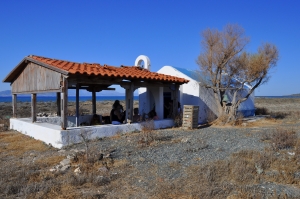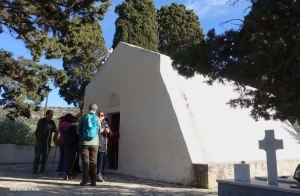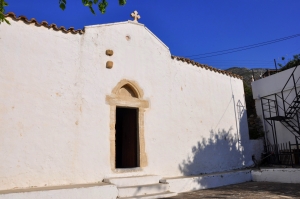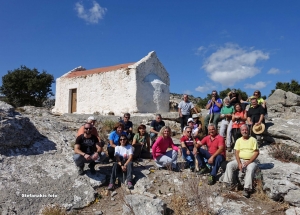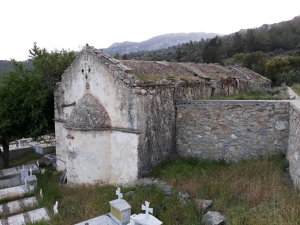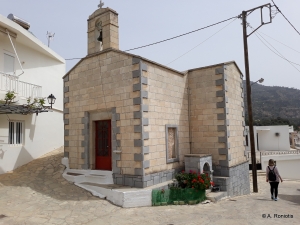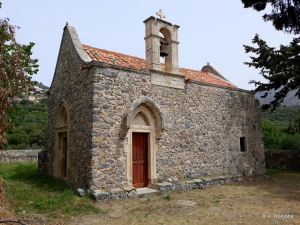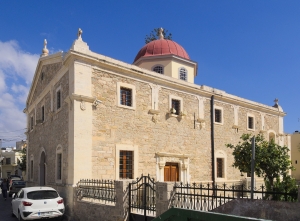The church of Agios Nikolaos is located on the northern side of the island Chrissi, at the site where Tyrian purple was produced and graves are located. It dates back to the 13th century, although it has undergone more recent interventions. The temple is built on the site of an ancient building.
The Byzantine church of Agia Marina is preserved in the cemetery of village Meseleri in Ierapetra with exceptional wall paintings dating back to the Venetian era (14th century). Among the frescoes that stand out are the birth of Jesus and the Descent to Hades in the sanctuary (instead of the usual depiction of the Ascension of Jesus).
For the usual practices of eastern Crete, the church of Saint George at Kavoussi, is a barrel-vaulted church of large dimensions with two wings on the west side which create a T-shaped narthex. The great length of the church may have resulted from an extension to the east during a second construction phase.
The church of Holy Cross (Timios Stavros) is built on the top of an impressive rocky hill at an altitude of 750m with stunning views of Ierapetra. Inside, it bears some frescoes from the Venetian era.
The village with this rich religious tradition hosts many churches. Among them are the Byzantine church of Saint George and the half-ruined church of the Panagia (Virgin Mary) dedicated to the Presentation of the Virgin Mary.
The church of Agios Nikolaos is located in a centre of the village Malles in the province of Ierapetra and at first glance one thinks that it is a modern temple. However, the church dates back to the Venetian period but has undergone extensive restoration works, both externally and internally.
South of the village Malles in the province of Ierapetra lies the deserted village of Loutra, where the imposing church of Agios Georgios still dominates the place with a large cypress tree next to it. Because of its size, it is believed to have been the seat of the Diocese of Iera, like the nearby church of Panagia at Armos.





